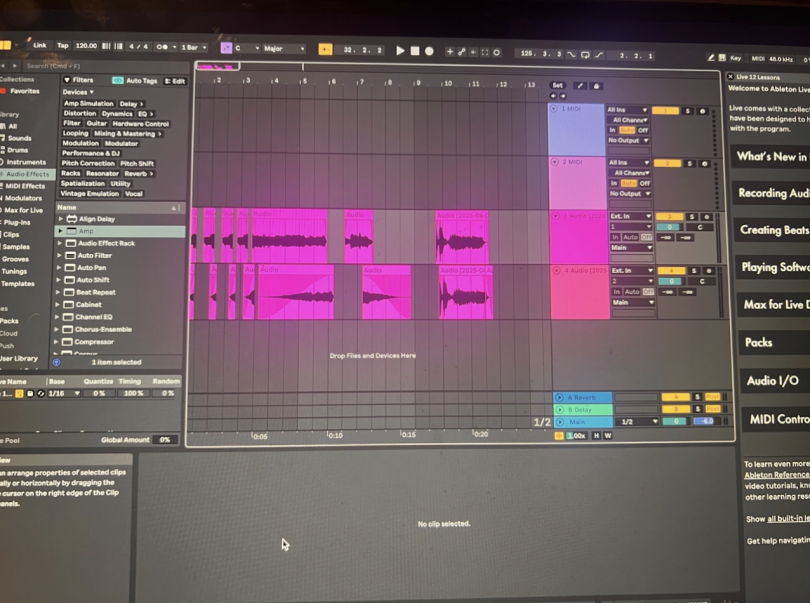
Spring 2025 Courses: A Season of Curiosity and Creation
Now that I'm two weeks into spring term, it feels like the perfect time to share a bit about the classes I'm taking. And honestly? I don't think I've ever been this excited about a course lineup. Let's dive in!
COGS 50.07: Aphasiology and the Neurobiology of Language
Though this course falls squarely within my major, it covers a niche I haven't yet explored: language impairment and its neurological roots. I saw it as a chance to stretch the scope of my cognitive science studies. Despite the intimidating title, Professor Samantha Wray created such an inclusive and intellectually stimulating environment from day one. Students bring a variety of disciplinary backgrounds (including but not limited to cognitive science, neuroscience, and linguistics), and that diversity of perspective makes each discussion richer. We don't just analyze landmark papers; we collaboratively compare language models and present our insights in every class.
MUS 25: Sonic Arts I: Machine Music
At long last, I'm enrolled in the class I've had my eye on since my very first spring at Dartmouth: Sonic Arts! My relationship with music is intense (Spotify told me I clocked in 200k minutes last year), and that energy spills into my creative work in other media, like photography. Despite having no formal training, I've found so much joy in the hands-on, exploratory nature of this course. We immerse ourselves in the history of experimental sound, play with theory, and compose using department-provided gear that makes the whole process feel like play. It's been a perfect space to reconnect with curiosity.

ARTH 63.74: Art and AI: Machine Creativity in the Age of Artificial Intelligence
Even though this course is offered through the Art History department, its interdisciplinary nature makes it a natural fit for my major, especially given that my thesis focuses on art perception in the digital age. Each week, we dive into readings that span computer science, philosophy, and aesthetics, asking what it really means to create and perceive art in a time when machines can (or maybe cannot…) do both. The small seminar format makes the class feel more like a think tank than a lecture. I often find myself wishing it ran longer.
Each class brings something distinct to the table, and together, they're shaping what might be one of my most inspiring academic terms yet. Altogether, these courses remind me why I love the approach to learning and teaching at Dartmouth: not just informative but also imaginative.


















